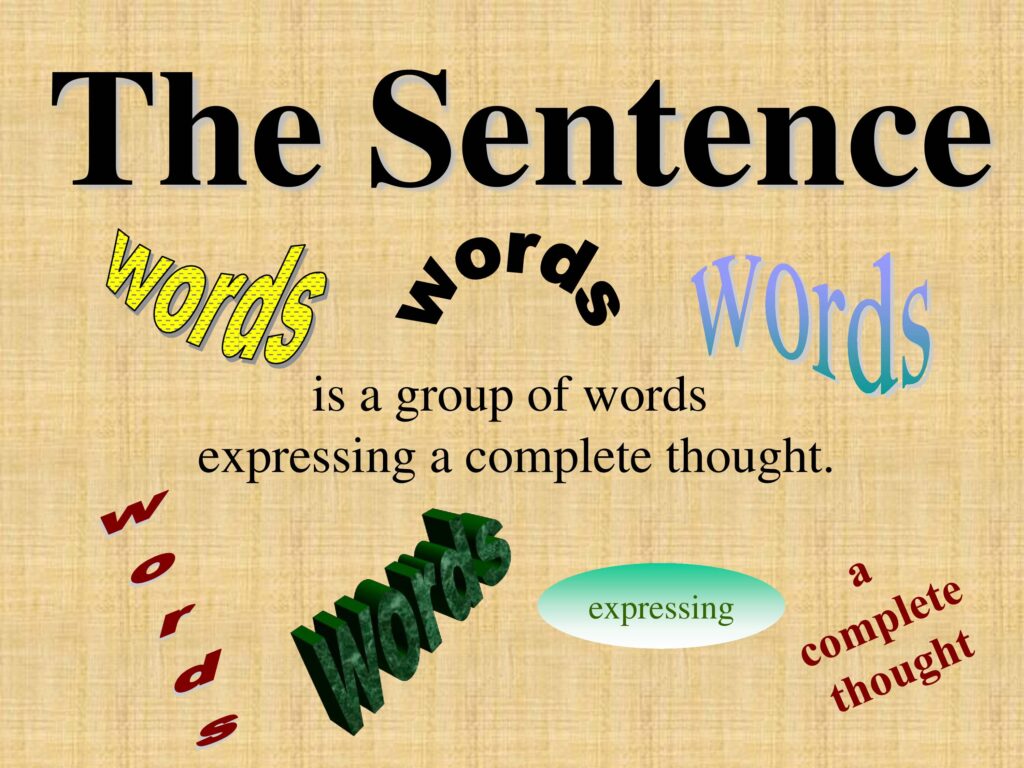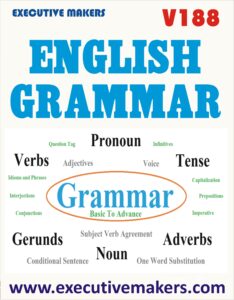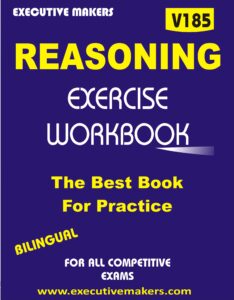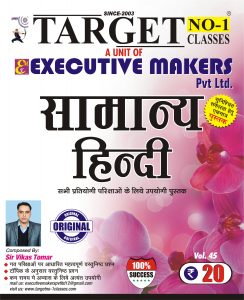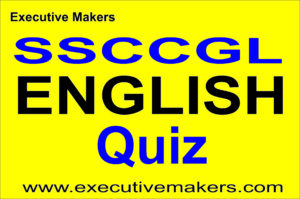Blog, ENGLISH, IN ENGLISH
[ Free Study ] [ The Sentence ] [ What is a Sentence ? ] [ How many types of a sentence ? ]
The Sentence
What is a Sentence ?
How many types of a sentence ?

Definition : (The Sentence)
A group of words that makes complete sense, is said to be
the sentence.
Examples :
(1) Ravi plays cricket.
(2) He is reading The Times of India.
To Download This Book. Click Here
Kinds of Sentences :
There are four kinds of sentences :
(1) Assertive sentence : A sentence that makes a statement,
is said to be the assertive sentence.
Examples :
(1) He is writing a letter.
(2) He does not like music.
(3) I like to play football.
(4)The birds have flown away.
(5) I can do this.
(2) Interrogative sentence : A sentence that asks a question,
is said to be the Interrogative sentence.
Examples :
(1) Why are you making a noise ?
(2) When will they come ?
(3) Were they singing ?
(4) Where is she ?
(5) Why are you so sad ?
(3) Imperative sentence : A sentence that expresses a
command, a request , a proposal or an advice, is said to be
the Imperative sentence.
Examples :
(1) Shut the door.
(2) Please open the door.
(3) Do not make a noise in the class.
(4) Let us go for a walk.
(5) Always speak the truth.
(4) Exclamatory sentences : A sentence that expresses
strong or sudden feeling, is said to be the Exclamatory
sentence.
Examples :
(1) What a beautiful house it is !
(2) What a beautiful sight !
(3) Ah ! What a pity !
(4) What a shame !
(5) How cruel you are !
To Download This Book. Click Here
Exercise
Rearrange the given words to make meaningful sentences :
1. people started / stopped / as / it / raining, / moving out.
2. healthy / are / unless / we / study / we / or / cannot / do /
well / any other / kind of work.
3. improve / in order / our / to / health, / essential / sports
and games / are.
4. child / there / is / play / no / that / to / does not / like.
5. possible / encouraged / children / as much as / should /
to / be / play.
6. to a standstill / fails / life comes / in the cities, / when
power.
7. get / wait / we / for / to / better / things.
8. accept the things / and / them / we / have / we cannot
change / to / act / on.
9. drowning boy / my mother / the / it was / rescued / who.
10. not good / one’s juniors / to insult / is.
11. amongst / all the money / distributed / themselves /
they.
12. of this school / of your school / the building / bigger
than / is / the building.
13. Delhi / Chandigarh / the climate / is / of / like / of /
that.
14. as hard / everybody / they could / tried / as.
15. prize / these children / of / deserves / each / a.
16. hard working person / met / the most / I / is / he / have
/ that.
17. the day / have / been / you / throughout / waiting?
18. of him / so jealous/ wanted him/ to kill/ he was/ that
he.
19. go / we / the / can / world / round / a / by / time / plane
/ in / no.
20. their / welcome / rain / farmers / depend / as / it / crops
/ on.
21. havoc / sometimes / proves / rain / a / too.
22. to blow / the temperature / a cool breeze / began /
bringing down.
23. talk / we mean / when / of / we / pollution, / pollution /
air, water and land.
24. is the / sources of air pollution / one of the biggest /
ever increasing / motor vehicles / number of.
25. can be sent / waste / the / proper / products / a /
drainage system / through.
26. thickly / areas / the factories / from / should be away /
populated.
27. wild animals / forests / various / of / are / home / to /
kinds.
28. energy / is / it / an / light / which / and / gives / heat.
29. a light, / when / night / becomes bright as day / we
switch on.
30. they / electricity / fans / and / run on / give / of summer
/ cool air / in the heat.
31. room heaters / to keep us warm / in the cold / help / of
winter.
32. invention / was / telegraphy / the / power / first / to /
electric / use.
33. telephone / the / this / invention / led / to / of / the.
34. children / should be kept / all electric goods / of small /
out of the reach.
35. may / works / he / that / so / succeed / hard / he.
Answers
1. As it stopped raining, people started moving out.
2. Unless we are healthy we cannot study or do any other
kind of work well.
3. In order to improve our health, sports and games are
essential.
4. There is no child that does not like to play.
5. Children should be encouraged to play as much as
possible.
6. In the cities, life comes to a standstill when power fails.
7. We wait for things to get better.
TARGET NO-1 CLASSES
{A UNIT OF}
EXECUTIVE MAKERS PVT.LTD.
FOR DIGITAL LIBRARY : www.executivemakers.com
8. We have to accept the things we cannot change and act
on them.
9. It was my brother who rescued the drowning boy.
10. To insult one’s juniors is not good.
11. They distributed all the money amongst themselves.
12. The building of this school is bigger than the building
of your school.
13. The climate of Delhi is like that of Chandigarh.
14. Everybody tried as hard as they could.
15. Each of these children deserves a prize.
16. He is the most hard working person that I have met.
17. Have you been waiting throughout the day ?
18. He was so jealous of him that he wanted to kill him.
19. We can go round the world by a plane in no time.
20. Farmers welcome rain as their crops depend on it.
21. Sometimes rain proves a havoc too.
22. A cool breeze began to blow bringing down the
temperature.
23. When we talk of pollution, we mean air, water and
land pollution.
24. One of the biggest sources of air pollution is the ever
increasing number of motor vehicles.
25. The waste products can be sent through a proper
drainage system.
26. The factories should be away from thickly populated
areas.
27. Forests are home to various kinds of wild animals.
28. It is an energy which gives light and heat.
29. When we switch on a light, night becomes bright as
day.
30. Fans runs on electricity and they give cool air in the
heat of summer.
31. In the cold of winter, room heaters help to keep us
warm.
32. Telegraphy was the first invention to use electric
power.
33. This led to the invention of the telephone.
34. All electric goods should be kept out of the reach of
small children.
35. He works hard so that he may succeed.
MORE BOOKS : DOWNLOAD NOW…….GET PERFECTION
VIDEO CLASSES :
What is Infinitive in English Grammar ? Click on this…..
How to use Mathematics Trick ? Click on this…..
Learn French. Click On This…..
Learn Tricky SSC Mathematics……..
How to Learn Trigonometry……..

Clauses
Clauses are defined as the group of words that have a subject and a predicate. It is a part of sentence that contains a subject and a finite verb.
Examples :
(1) I am going home.
(2) Sheela speaks loudly.
In the above examples, ‘I’ and ‘Sheela’ are the subject, while ‘going’ and ‘speaks’ are the finite verb.


Kinds of Clauses
There are three kinds of clauses that are given below.
(1) Principal Clause
(2) Coordinate Clause
(3) Subordinate Clause
(1) Principal Clause : Principal clause is the clause, that requires no conjunction. It can stand alone as a sentence. It is also called independent clause as it does not depend on another clauses.
Examples :
(1) I met a friend who helped me a lot.
(2) I saw a man who was crying.
(2) Coordinate Clause : Coordinate clause is an independent clause that joins two principal clauses often with a coordinating conjunction such as and, but, or both, yet, still etc.
Examples :
(1) I will go home and he will go to work.
(2) He is poor but he is very honest.
(3) Subordinate Clause : Subordinate clause / Dependent clause is the clause that starts with a conjunction. It cannot stand alone as a complete sentence as it depends on the other clause to give a complete meaning.
Examples :
(1) They contacted the customer who had not paid the bill.
(2) Though he was ill, he went to school.
Subordinate clause is further classified into three categories on the basis of their function.
(A) Noun Clause
(B) Adjective Clause
(C) Adverb Clause
(A) Noun Clause : Noun clauses are those clauses that perform the function of a noun in a sentence. It is also called nominal clauses.
Noun clauses are used
(1) As a subject
(2) As an object
(3) As an object of a preposition
(4) As a predicative nominative
Functions of a noun clause are as follows…
Noun clause as a subject of the verb :
Examples :
(1) Whatever you do to me, will be forgiven.
(2) She asked me where I was going.
In the above examples, the bold part of the sentences used as the subject of the sentences.
Noun clause as an object of the verb :
Examples :
(1) I don’t understand what he is doing.
(2) She told me that she would resign.
In the above examples, the bold part used as the object of the verb ‘understand’ and ‘told’.
Noun clause as an object of the preposition :
Examples :
(1) Please listen to what he says.
(2) I find no sense in what you spoke to her.
The bold part of the above examples, functioning as the object of the preposition ‘to’ and ‘in’.
Noun clause as a predicative nominative :
Examples :
(1) The biggest problem in life is that people take it so seriously.
(2) It is what I mean.
The bold part of the above examples is a dependent clause which is functioning as a predicative nominative for the subject.
(B) Adjective Clause : Adjective clause does the work of an adjective. It qualifies a noun or a pronoun in the principal or any other subordinate clause.
Study the following examples carefully…..
(1) He is the man, who is honest. (Qualifying the noun ‘man’)
(2) The time, when he will come, is not certain. (Qualifying the noun ‘time’)
(3) Those, who are honest, succeed in life. (Qualifying the pronoun ‘those’)
(4) I gave him the pen, which I bought for myself. (Qualifying the noun ‘pen’)
(C) Adverb Clause : An Adverb clause is a subordinate clause that does the work of an adverb. It, therefore, modifies some adjective or verb.
Adverb clauses are classified as follows….
Adverb Clause of Time : An adverb clause of time shows when something happens. These clauses are introduced by conjunctions of time such as ‘when’ as, while, before, after, by the time, as soon as, until, till, whenever, since, etc.
Examples :
(1) I get up before the Sun rises.
(2) She cooked after her husband went to market.
Adverb Clause of Condition : Adverb clause of condition describes the condition under which the action takes place in the sentence. These clauses are introduced by subordinating conjunction ‘if, unless, on condition that, provided, in case, etc.
Examples :
(1) I will go if he comes.
(2) You can’t pass unless you study sincerely.
Adverb Clause of Purpose : Adverb clause of purpose tells about the purpose which the verb is addressing.
These clauses are introduced by subordinating conjunctions ‘that, so that, in order that and lest.’
Examples :
(1) He worked hard so that he could succeed.
(2) Run fast lest you should miss the train.
Adverb Clause of Place : Adverb clause of place tells where the action described by the main verb takes place. These clauses are introduced by conjunctions ‘where, and ‘wherever’.
Examples :
(1) This is the room, where I lived in.
(2) This is the hotel, where she was murdered.

